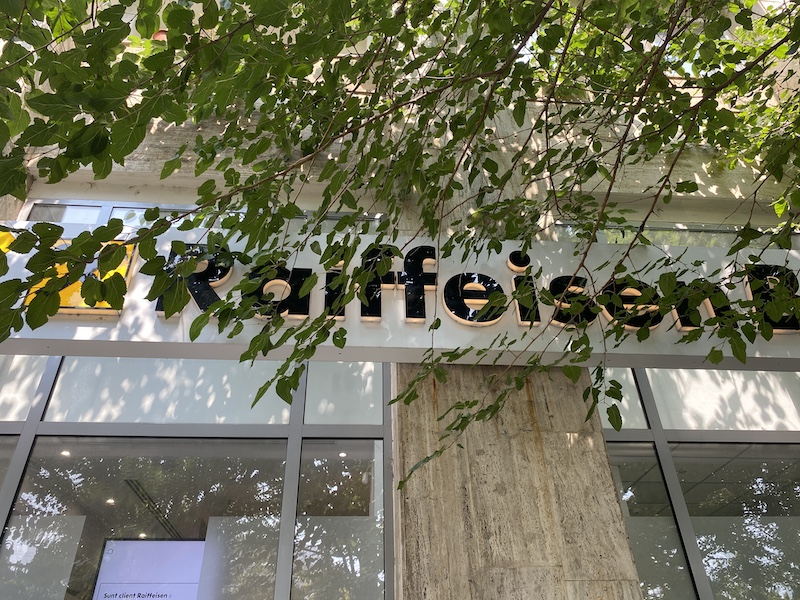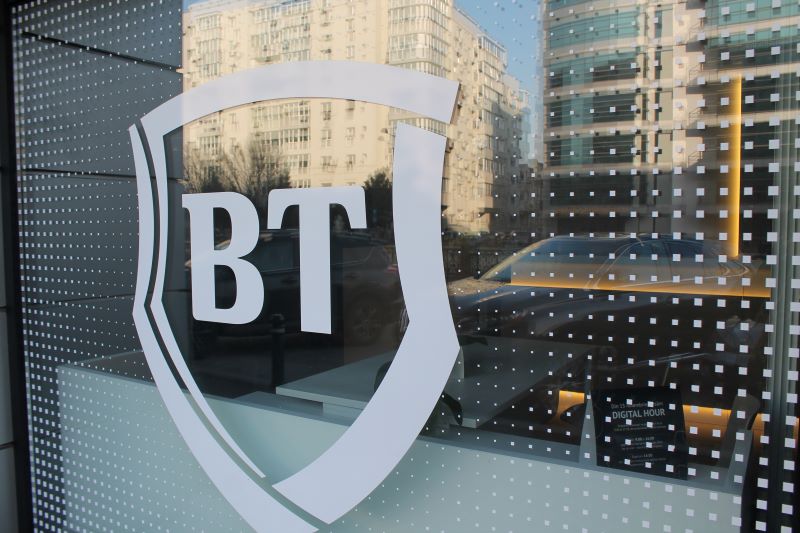Financial Times: Economia Romaniei, intr-un real pericol de supraincalzire
 Autor: Bancherul.ro
Autor: Bancherul.ro
2008-03-10 10:40
Economia Romaniei se afla intr-un real pericol de supraincalzire, se arata intr-un articol publicat de Financial Times.
Influxurile de investitii, pe termen scurt dar si pe termen lung, a determinat o crestere puternica a consumului, ce a determinat indatorarea puternica a populatiei, in special in valuta, o majorare a preturilor imobilelor si un tot mai mare deficit de cont curent pe balanta de plati.
Problema este daca o incetinire inevitabila a acestor tendinte de crestere in 2008, in conditiile in care criza financiara limiteaza resursele de imprumuturi din strainatate, va duce la un reasezare usoara (soft landing) sau va cauza un soc (hard landing) economiei romanesti.
FT REPORT - ROMANIA 2008: Debt fuels over-heating
By Quentin Peel, Financial Times
Published: Mar 07, 2008
The European Union has been good for the Romanian economy. Ever since the prospect of EU membership started to look plausible - back in 1999 - the growth rate of gross domestic product has averaged around 6 per cent a year.
"Investors believed the European Union convergence story, and bought into it in a substantial way," says Cristian Popa, deputy governor of the National Bank of Romania, the central bank. "Romania is growing fast also because it is catching up with the other new EU member states."
Rapid growth from a low base - in 2006 Romania’s income per capita was still less than half that of Hungary - has seen a rising inflow of foreign direct investment. It hit a high point of €8.7bn in 2006, including €2.2bn from the sale of Banca Comerciala Romana to Austria’s Erste Bank, before slipping back to €7bn last year.
"In the past two years we attracted more foreign investment than in the past decade," says Varujan Vosganian, the minister of economy and finance. "The increase in FDI has been directly related to our integration into the EU."
Yet the traditional picture of Romania as a low-wage economy has changed. Wages and incomes have increased rapidly, at an average annual rate of 25 per cent in recent years.
Squeezed by the twin pressures of economic growth and continuing labour migration to the rest of the EU - especially Italy and Spain - unemployment has dropped to 5 per cent, and skilled labour is in short supply in many sectors.
"The time when Romania was chosen because of low wages belongs to the past," Mr Vosganian admits. "Now it is chosen because the market is quite large, there is fiscal stability, low taxation on incomes, and because competition is not quite so tough as in other countries. Compared with other countries, however, Romania is not so cheap."
Indeed, today the danger is quite different: little more than a year after joining the EU, the Romanian economy is in serious danger of over-heating. The inflow of capital, both long and short-term, has fuelled a boom in consumption, a very rapid rise in household indebtedness - especially in foreign currency - and property prices, and a soaring current account deficit on the balance of payments. The question is whether an inevitable slowdown in 2008, as the international financial crisis starts to squeeze sources of foreign borrowing, will result in a hard or soft landing for an economy that has only just begun to enjoy the fruits of EU membership.
The central bank increased interest rates by a full percentage point to 9 per cent in early February, the third increase in four months, in a bid to curb inflation running at 6.6 per cent at the end of 2007, compared with a target for the year of 3.9 per cent. Yet the bank faces a real dilemma between fighting inflation, controlling credit expansion, and seeking to cap the rise in the current account deficit, up by €7bn to €17bn. If a higher interest rate stabilises the leu, which fell 16 per cent against the euro last year, it would put further pressure on the trade deficit.
"Domestic demand - and especially consumption - is rising unsustainably fast," says Mr Popa, based on income growth, increasing bank credit, and remittances from abroad (more than €6bn according to official statistics). "This mirrors a large current account deficit (our estimate for 2007 is 14.3 per cent of GDP) that is too high to be sustained year-in, year-out. This deficit needs to be contained and then gradually reduced."
The government has come in for criticism from the International Monetary Fund and the European Commission for running a lax fiscal policy, with a forecast budget deficit for 2008 of 2.7 per cent of GDP.
Although he is defensive, Mr Vosganian has agreed to try to cut the deficit to 2.2 per cent in an emergency budget revision, trimming public spending on equipment and cars. That does not tackle the real concerns of the critics, who are worried that in an election year the government is pumping too much money into public wage rises, as well as social spending. Romania is particularly vulnerable to wage-led inflation because public sector workers have repeatedly succeeded in winning inflation-busting wage rises.
"I do not see the difficulty regarding public spending," Mr Vosganian says. "Since 2001 we have kept the deficit under 3 per cent. There is no other solution to diminish the gap between Romania and other EU countries than overheating the economy. How is it possible to be a member of the EU with an average wage of €300? It is essential to increase wages."
He is likely to hear a very different story at the annual consultation with the IMF in April.
"We are still betting on a soft landing," says Juan JosÚ Fernandez-Ansola, the resident representative of the Fund. "But that depends on policies becoming more realistic. If wages are driven by the private sector, it would be rational. But the public sector has been taking the lead, crowding out the private sector."
Productivity growth is increasing by around 10 per cent or less per year, against wage increases above 20 per cent, he says. "That cannot end in a good place."
The slow process of economic reform in Romania during the 1990s has left over-manning throughout the public sector. More than 40 per cent of the workforce is still on the state payroll. In a tight labour market, many could be absorbed by the private sector.
The other critical bottleneck is infrastructure, where spending on communications such as roads and railways tends always to be squeezed by current spending towards the end of the budget year. Poor project design and management capacity is one factor. Another is the lack of any tradition of multi-annual budget planning. A third is a lack of co-ordination between central and local government. Too often they are at loggerheads.
All those problems are high on the list to be tackled with training and assistance from Brussels, and from the European Bank for Reconstruction and Development. Romania must improve its administrative capacity - not least in the finance ministry - to qualify for all the funds on offer from the EU budget.
Comentarii
Adauga un comentariu
Adauga un comentariu folosind contul de Facebook
Alte stiri din categoria: Opinie
Banca Transilvania implineste 30 de ani
Mesaj top management BT, 16 februarie 2024 Banca Transilvania: Sunt 30 de ani de când cre╚Ötem în România ╚Öi de când vedem România crescând Ast─âzi este ziua B─âncii Transilvania. Orice aniversare ne duce cu detalii
De cand si cat de mult ar putea sa scada dobanzile in 2024?
Diminuarea inflatiei ridica intrebarea cu privire la momentul in care ar putea sa inceapa sa scada si dobanda de referinta stabilita de Banca Nationala a Romaniei (BNR) si implicit cele la credite si depozite. Discutiile privind scaderea dobanzii BNR ar putea detalii
Ce responsabilitate au bancile in cazul fraudelor online?
„Am fost victima unei fraude prin Neocapital ╚Öi mi s-au furat sume importante prin transfer online neautorizat de mine”, ne-a scris un cititor. „Sint grupuri organizate, iar b─âncile nu au sisteme de securizare eficienta a conturilor detalii
Creditele ipotecare ar putea creste in 2024, estimeaza Banca Transilvania
Banca Transilvania se asteapa ca cererea de credite ipotecare sa creasca in 2024, datorita reducerii dobanzilor si a unei oferte de preturi mai accesibile pe piata rezidentiala, conform declaratiilor directorului bancii, Omer Tetik. ”Cre╚Öterea detalii
- Rambursarea ratelor la credite in Romania se face ca in celelalte tari din Europa; motoda propusa de ANPC este contrara interesului consumatorilor
- De ce ar majora bancile comisioanele pentru cash, daca se limiteaza cash-ul?
- Simona Halep, sustinuta in continuare de Banca Transilvania
- Romanii au incredere in banci ca le pot rezolva problemele, arata un sondaj
- Bancile sunt suspectate ca blocheaza accesul unor clienti la credite, prin scorul FICO al Biroului de Credit
- Doar 21% dintre romani au probleme cu băncile și IFN-urile, arata un sondaj CSALB
- De ce trebuie sa merg la ghiseu pentru activarea aplicatiei YOU BRD? (actualizat)
- Contractele cu bancile si IFN-urile pot fi imbunatatite cu ajutorul CSALB
- ARB acuza ANPC de abuz si prejudicii grave de imagine aduse sistemului bancar
- BCR explica diferenta dintre ratele egale si cele descrescatoare la credite
Criza COVID-19
- In majoritatea unitatilor BRD se poate intra fara certificat verde
- La BCR se poate intra fara certificat verde
- Firmele, obligate sa dea zile libere parintilor care stau cu copiii in timpul pandemiei de coronavirus
- CEC Bank: accesul in banca se face fara certificat verde
- Cum se amana ratele la creditele Garanti BBVA
Topuri Banci
- Topul bancilor dupa active si cota de piata in perioada 2022-2015
- Topul bancilor cu cele mai mici dobanzi la creditele de nevoi personale
- Topul bancilor la active in 2019
- Topul celor mai mari banci din Romania dupa valoarea activelor in 2018
- Topul bancilor dupa active in 2017
Asociatia Romana a Bancilor (ARB)
- B─âncile din Rom├ónia nu au majorat comisioanele aferente opera╚Ťiunilor ├«n numerar
- Concurs de educatie financiara pentru elevi, cu premii in bani
- Creditele acordate de banci au crescut cu 14% in 2022
- Romanii stiu educatie financiara de nota 7
- Gradul de incluziune financiara in Romania a ajuns la aproape 70%
ROBOR
- ROBOR: ce este, cum se calculeaza, ce il influenteaza, explicat de Asociatia Pietelor Financiare
- ROBOR a scazut la 1,59%, dupa ce BNR a redus dobanda la 1,25%
- Dobanzile variabile la creditele noi in lei nu scad, pentru ca IRCC ramane aproape neschimbat, la 2,4%, desi ROBOR s-a micsorat cu un punct, la 2,2%
- IRCC, indicele de dobanda pentru creditele in lei ale persoanelor fizice, a scazut la 1,75%, dar nu va avea efecte imediate pe piata creditarii
- Istoricul ROBOR la 3 luni, in perioada 01.08.1995 - 31.12.2019
Taxa bancara
- Normele metodologice pentru aplicarea taxei bancare, publicate de Ministerul Finantelor
- Noul ROBOR se va aplica automat la creditele noi si prin refinantare la cele in derulare
- Taxa bancara ar putea fi redusa de la 1,2% la 0,4% la bancile mari si 0,2% la cele mici, insa bancherii avertizeaza ca indiferent de nivelul acesteia, intermedierea financiara va scadea iar dobanzile vor creste
- Raiffeisen anunta ca activitatea bancii a incetinit substantial din cauza taxei bancare; strategia va fi reevaluata, nu vor mai fi acordate credite cu dobanzi mici
- Tariceanu anunta un acord de principiu privind taxa bancara: ROBOR-ul ar putea fi inlocuit cu marja de dobanda a bancilor
Statistici BNR
- Deficitul contului curent dup─â primele dou─â luni, mai mare cu 25%
- Deficitul contului curent, -0,39% din PIB dup─â prima lun─â a anului
- Deficitul contului curent, redus cu 17%
- Inflatia a încheiat anul 2023 la 6,61%, semnificativ sub prognoza oficială
- Deficitul contului curent, redus cu o cincime dup─â primele zece luni ale anului
Legislatie
- Legea nr. 311/2015 privind schemele de garantare a depozitelor ┼či Fondul de garantare a depozitelor bancare
- Rambursarea anticipata a unui credit, conform OUG 50/2010
- OUG nr.21 din 1992 privind protectia consumatorului, actualizata
- Legea nr. 190 din 1999 privind creditul ipotecar pentru investi╚Ťii imobiliare
- Reguli privind stabilirea ratelor de referin┼ú─â ROBID ┼či ROBOR
Lege plafonare dobanzi credite
- BNR propune Parlamentului plafonarea dobanzilor la creditele bancilor intre 1,5 si 4 ori peste DAE medie, in functie de tipul creditului; in cazul IFN-urilor, plafonarea dobanzilor nu se justifica
- Legile privind plafonarea dobanzilor la credite si a datoriilor preluate de firmele de recuperare se discuta in Parlament (actualizat)
- Legea privind plafonarea dobanzilor la credite nu a fost inclusa pe ordinea de zi a comisiilor din Camera Deputatilor
- Senatorul Zamfir, despre plafonarea dobanzilor la credite: numai bou-i consecvent!
- Parlamentul dezbate marti legile de plafonare a dobanzilor la credite si a datoriilor cesionate de banci firmelor de recuperare (actualizat)
Anunturi banci
- Bancile comunica automat cu ANAF situatia popririlor
- BRD bate recordul la credite de consum, in ciuda dobanzilor mari, si obtine un profit ridicat
- CEC Bank a preluat Fondul de Garantare a Creditului Rural
- BCR aproba credite online prin aplicatia George, dar contractele se semneaza la banca
- Aplicatia Eximbank, indisponibila temporar
Analize economice
- Rezultatul economic pe 2023, tot +2,1% dar cu 7 miliarde lei mai mare
- Rom├ónia - prima ├«n UE la infla╚Ťie, prin efect de baz─â
- Deficitul comercial lunar a revenit peste cota de 2 miliarde euro
- România, 78% din media UE la PIB/locuitor în 2023
- Rom├ónia - prima ├«n UE la infla╚Ťie, prin efect de baz─â
Ministerul Finantelor
- Datoria publică, imediat sub pragul de 50% din PIB la începutul anului 2024
- Deficitul bugetar, deja -1,67% din PIB dup─â primele dou─â luni
- Datoria public─â, sub pragul de 50% din PIB la finele anului 2023
- Deficitul bugetar, din ce în ce mai mare la început de an
- Deficitul bugetar dup─â 8 luni, ├«nc─â mai mare fa╚Ť─â de rezultatul din anul trecut
Biroul de Credit
- FUNDAMENTAREA LEGALITATII PRELUCRARII DATELOR PERSONALE IN SISTEMUL BIROULUI DE CREDIT
- BCR: prelucrarea datelor personale la Biroul de Credit
- Care banci si IFN-uri raporteaza clientii la Biroul de Credit
- Ce trebuie sa stim despre Biroul de Credit
- Care este procedura BCR de raportare a clientilor la Biroul de Credit
Procese
- Un client Credius obtine in justitie anularea creditului, din cauza dobanzii prea mari
- Hotararea judecatoriei prin care Aedificium, fosta Raiffeisen Banca pentru Locuinte, si statul sunt obligati sa achite unui client prima de stat
- Decizia Curtii de Apel Bucuresti in procesul dintre Raiffeisen Banca pentru Locuinte si Curtea de Conturi
- Vodafone, obligata de judecatori sa despagubeasca un abonat caruia a refuzat sa-i repare un telefon stricat sau sa-i dea banii inapoi (decizia instantei)
- Taxa de reziliere a abonamentului Vodafone inainte de termen este ilegala (decizia definitiva a judecatorilor)
Stiri economice
- Produc╚Ťia industrial─â pe februarie, cu aproape 7% sub cea din urm─â cu cinci ani
- Infla╚Ťia anual─â a revenit la nivelul de la finele anului anterior
- Pensia real─â de asigur─âri sociale de stat a crescut anul trecut cu 2,9%
- Produc╚Ťia de cereale boabe pe 2023, cu o zecime mai mare fa╚Ť─â de anul precedent
- Rom├ónia, ╚Ťara UE cu cea mai mare cre╚Ötere a costului salarial
Statistici
- Care este valoarea salariului minim brut si net pe economie in 2024?
- Cat va fi salariul brut si net in Romania in 2024, 2025, 2026 si 2027, conform prognozei oficiale
- Rom├ónia, pe ultimul loc ├«n UE la evolu╚Ťia productivit─â╚Ťii muncii ├«n agricultur─â
- INS: Veniturile romanilor au crescut anul trecut cu 10%. Banii de mancare, redistribuiti cu precadere spre locuinta, transport si haine
- Inflatia anuala - 13,76% in aprilie 2022 si va ramane cu doua cifre pana la mijlocul anului viitor
FNGCIMM
- Programul IMM Invest continua si in 2021
- Garantiile de stat pentru credite acordate de FNGCIMM au crescut cu 185% in 2020
- Programul IMM invest se prelungeste pana in 30 iunie 2021
- Firmele pot obtine credite bancare garantate si subventionate de stat, pe baza facturilor (factoring), prin programul IMM Factor
- Programul IMM Leasing va fi operational in perioada urmatoare, anunta FNGCIMM
Calculator de credite
- ROBOR la 3 luni a scazut cu aproape un punct, dupa masurile luate de BNR; cu cat se reduce rata la credite?
- In ce mall din sectorul 4 pot face o simulare pentru o refinantare?
Noutati BCE
- Acord intre BCE si BNR pentru supravegherea bancilor
- Banca Centrala Europeana (BCE) explica de ce a majorat dobanda la 2%
- BCE creste dobanda la 2%, dupa ce inflatia a ajuns la 10%
- Dob├ónda pe termen lung a continuat s─â scad─â in septembrie 2022. Ecartul fa╚Ť─â de Polonia ╚Öi Cehia, redus semnificativ
- Rata dobanzii pe termen lung pentru Romania, in crestere la 2,96%
Noutati EBA
- Bancile romanesti detin cele mai multe titluri de stat din Europa
- Guidelines on legislative and non-legislative moratoria on loan repayments applied in the light of the COVID-19 crisis
- The EBA reactivates its Guidelines on legislative and non-legislative moratoria
- EBA publishes 2018 EU-wide stress test results
- EBA launches 2018 EU-wide transparency exercise
Noutati FGDB
- Banii din banci sunt garantati, anunta FGDB
- Depozitele bancare garantate de FGDB au crescut cu 13 miliarde lei
- Depozitele bancare garantate de FGDB reprezinta doua treimi din totalul depozitelor din bancile romanesti
- Peste 80% din depozitele bancare sunt garantate
- Depozitele bancare nu intra in campania electorala
CSALB
- La CSALB poti castiga un litigiu cu banca pe care l-ai pierde in instanta
- Negocierile dintre banci si clienti la CSALB, in crestere cu 30%
- Sondaj: dobanda fixa la credite, considerata mai buna decat cea variabila, desi este mai mare
- CSALB: Romanii cu credite caut─â solu╚Ťii pentru reducerea ratelor. Cum raspund bancile
- O firma care a facut un schimb valutar gresit s-a inteles cu banca, prin intermediul CSALB
First Bank
- Ce trebuie sa faca cei care au asigurare la credit emisa de Euroins
- First Bank este reprezentanta Eurobank in Romania: ce se intampla cu creditele Bancpost?
- Clientii First Bank pot face plati prin Google Pay
- First Bank anunta rezultatele financiare din prima jumatate a anului 2021
- First Bank are o noua aplicatie de mobile banking
Noutati FMI
- FMI: criza COVID-19 se transforma in criza economica si financiara in 2020, suntem pregatiti cu 1 trilion (o mie de miliarde) de dolari, pentru a ajuta tarile in dificultate; prioritatea sunt ajutoarele financiare pentru familiile si firmele vulnerabile
- FMI cere BNR sa intareasca politica monetara iar Guvernului sa modifice legea pensiilor
- FMI: majorarea salariilor din sectorul public si legea pensiilor ar trebui reevaluate
- IMF statement of the 2018 Article IV Mission to Romania
- Jaewoo Lee, new IMF mission chief for Romania and Bulgaria
Noutati BERD
- Creditele neperformante (npl) - statistici BERD
- BERD este ingrijorata de investigatia autoritatilor din Republica Moldova la Victoria Bank, subsidiara Bancii Transilvania
- BERD dezvaluie cat a platit pe actiunile Piraeus Bank
- ING Bank si BERD finanteaza parcul logistic CTPark Bucharest
- EBRD hails Moldova banking breakthrough
Noutati Federal Reserve
- Federal Reserve anunta noi masuri extinse pentru combaterea crizei COVID-19, care produce pagube "imense" in Statele Unite si in lume
- Federal Reserve urca dobanda la 2,25%
- Federal Reserve decided to maintain the target range for the federal funds rate at 1-1/2 to 1-3/4 percent
- Federal Reserve majoreaza dobanda de referinta pentru dolar la 1,5% - 1,75%
- Federal Reserve issues FOMC statement
Noutati BEI
- BEI a redus cu 31% sprijinul acordat Romaniei in 2018
- Romania implements SME Initiative: EUR 580 m for Romanian businesses
- European Investment Bank (EIB) is lending EUR 20 million to Agricover Credit IFN
Mobile banking
- Comisioanele BRD pentru MyBRD Mobile, MyBRD Net, My BRD SMS
- Termeni si conditii contractuale ale serviciului You BRD
- Recomandari de securitate ale BRD pentru utilizatorii de internet/mobile banking
- CEC Bank - Ghid utilizare token sub forma de card bancar
- Cinci banci permit platile cu telefonul mobil prin Google Pay
Noutati Comisia Europeana
- Avertismentul Comitetului European pentru risc sistemic (CERS) privind vulnerabilit─â╚Ťile din sistemul financiar al Uniunii
- Cele mai mici preturi din Europa sunt in Romania
- State aid: Commission refers Romania to Court for failure to recover illegal aid worth up to ÔéČ92 million
- Comisia Europeana publica raportul privind progresele inregistrate de Romania in cadrul mecanismului de cooperare si de verificare (MCV)
- Infringements: Commission refers Greece, Ireland and Romania to the Court of Justice for not implementing anti-money laundering rules
Noutati BVB
- BET AeRO, primul indice pentru piata AeRO, la BVB
- Laptaria cu Caimac s-a listat pe piata AeRO a BVB
- Banca Transilvania plateste un dividend brut pe actiune de 0,17 lei din profitul pe 2018
- Obligatiunile Bancii Transilvania se tranzactioneaza la Bursa de Valori Bucuresti
- Obligatiunile Good Pople SA (FRU21) au debutat pe piata AeRO
Institutul National de Statistica
- Comer╚Ťul cu am─ânuntul, ├«n expansiune la ├«nceput de an
- Rom├ónia, pe locul 2 ├«n UE la cre╚Öterea comer╚Ťului cu am─ânuntul ├«n ianuarie 2024
- Comer╚Ťul cu am─ânuntul, ├«n cre╚Ötere cu 1,9% pe anul 2023
- Comer╚Ťul cu am─ânuntul, ├«n cre╚Ötere pe final de an
- Comer╚Ťul cu am─ânuntul, stabilizat la +2% fa╚Ť─â de anul anterior
Informatii utile asigurari
- Data de la care FGA face plati pentru asigurarile RCA Euroins: 17 mai 2023
- Asigurarea împotriva dezastrelor, valabilă și in caz de faliment
- Asiguratii nu au nevoie de documente de confirmare a cutremurului
- Cum functioneaza o asigurare de viata Metropolitan pentru un credit la Banca Transilvania?
- Care sunt documente necesare pentru dosarul de dauna la Cardif?
ING Bank
- La ING se vor putea face plati instant din decembrie 2022
- Cum evitam tentativele de frauda online?
- Clientii ING Bank trebuie sa-si actualizeze aplicatia Home Bank pana in 20 martie
- Obligatiunile Rockcastle, cel mai mare proprietar de centre comerciale din Europa Centrala si de Est, intermediata de ING Bank
- ING Bank transforma departamentul de responsabilitate sociala intr-unul de sustenabilitate
Ultimele Comentarii
-
Refuz de plat─â la o benzin─ârie suma de 103 euro
Mi s-au retras de două ori suma de 48 euro și suma de 103 euro suma corectă este de 48 de euro ... detalii
-
nevoia de banci
De ce credeti ca acum nu mai avem nevoie de banci si firme de asigurari? Pentru ca acum avem ... detalii
-
Mda
ACUM nu e nevoie de asa ceva .. acum vreo 20 de ani era nevoie ... ACUM de fapt nu mai e asa multa ... detalii
-
oprire pe salariu garanti bank
mi sa virat 2500de lei din care a fost oprit 850 de lei urmand sa mi se deblocheze restul sumei ... detalii
-
Amânare rate
Buna ziua, Am r─âmas ├«n urma cu ratele , va rog frumos sa ma ajuta╚Ťi cumva , so╚Ťul a pierdut ... detalii









